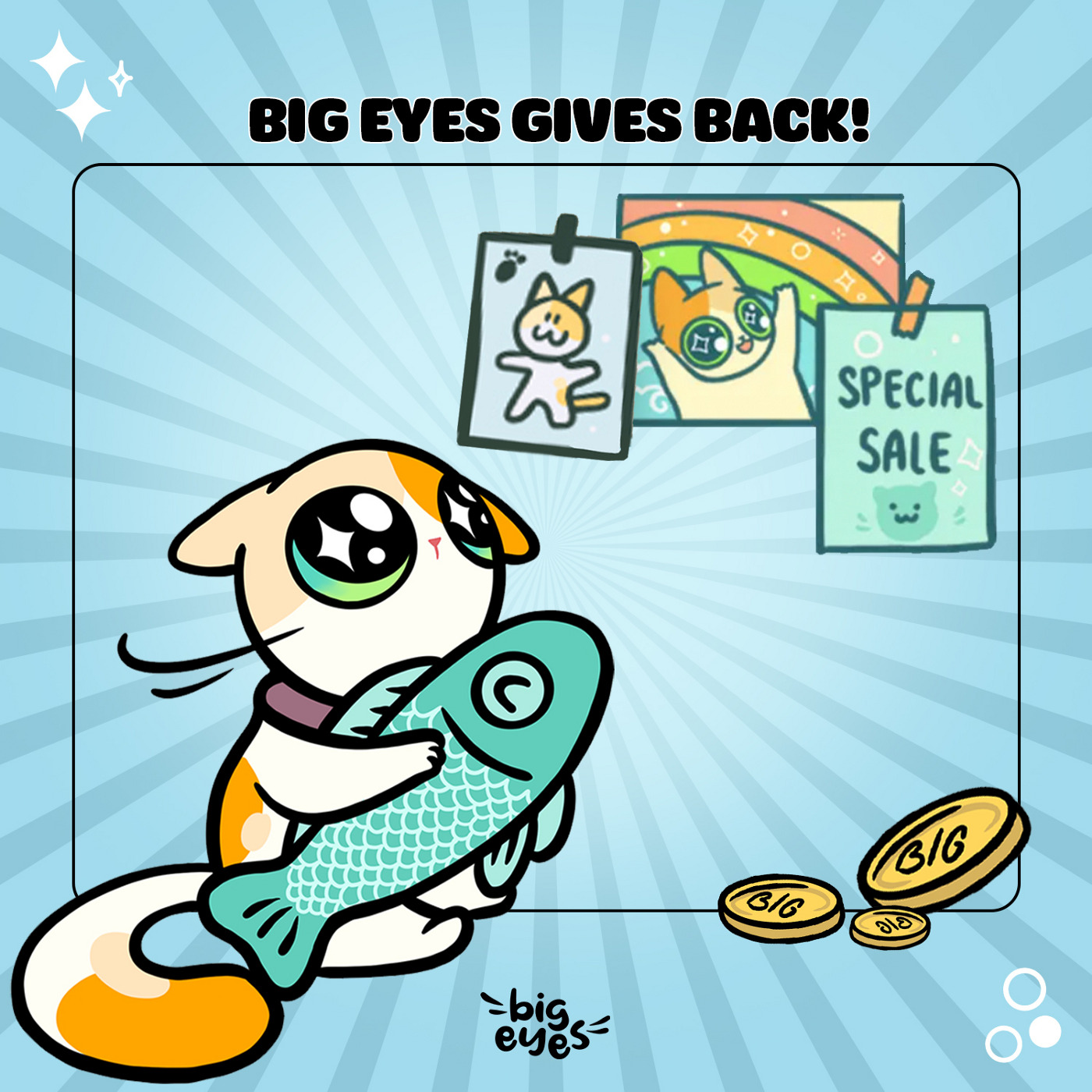Environmental impact is one of the biggest concerns for ethical investors looking to get into the cryptocurrency space. Bitcoin (BTC) is the most popular cryptocurrency and brought about the advent of cryptocurrencies. However, it is one of the worst in terms of environmental impact. In this piece, I will be examining Bitcoin, and comparing it to two more energy-efficient alternatives – Ethereum (ETH) and Big Eyes (BIG).
Bitcoin Building up a Bad Rep
Although one of the first and most robust cryptocurrencies, Bitcoin (BTC) is taking a heavy toll on the environment. Bitcoin mining consumes as much energy as a country like Jordan or Sri Lanka. This high rate of electricity consumption is due to a very secure, but energy-inefficient method of validating transactions, called proof-of-work.
Most of the electricity used to power Bitcoin mining comes from coal. 68% of mining happens in Asia, and with much more lax pollution and environmental regulations, a green, sustainable alternative is likely not seen as a very attractive option. Some companies attempt to greenwash this energy source by claiming they use ‘spare’ energy to prevent energy wastage from power plants at overcapacity.
Of course, with such a huge amount of electricity used, it is not surprising that Bitcoin is responsible for an exorbitantly high amount of greenhouse gas emissions. In 2019, Bitcoin was responsible for 22.9 million metric tons of C02 emissions, which is the same as 5 million cars being driven in a year.
Surely there must be a better alternative to this energy-guzzling behemoth?

Enter Ethereum
Ethereum (ETH) is the second most popular cryptocurrency. It works as a platform for other cryptocurrencies to operate on. It also allows for the decentralised execution of smart contracts. It initially ran on the same proof-of-work system as Bitcoin, but recently changed to proof-of-stake, a much more energy-efficient method to validate transactions on the network.

Big Eyes to the Rescue
Big Eyes (BIG) is an up-and-coming meme coin. This cute little cat has amassed over $9 million in pre-sale so far and continues to grow every day. As it runs on the Ethereum network, not only is Big Eyes more energy efficient than Bitcoin but having a positive impact on the environment is a big part of its core purpose. 5% of all tokens are held in a visible charity wallet, to be used to contribute towards causes that will make a positive impact on our planet. Big Eyes wants to focus more on ocean conservation charities, due to the negative effect that plastic pollution, oil spills and overfishing has on marine life. As Big Eyes tokens grow in value, so will the amount of monetary assistance they will be able to provide for charities trying to make the seas a cleaner place. Use promo code BUYEYES816 for additional, free Big Eyes tokens on your purchase.
Final Thoughts
Proof-of-stake is a much more energy-efficient method of validating transactions for a network to use. However, there are drawbacks to having a proof-of-stake system. It tends towards centralisation, as the whales in the market (investors that own a high percentage of cryptocurrency on the market) can have much more influence. The more funds they stake, the more voting power they have, and so many people question whether proof-of-stake even fulfils cryptocurrency’s entire purpose – decentralisation.
Regardless, proof-of-stake is much better than Bitcoin’s proof-of-work system in terms of environmental impact. With coins like Big Eyes, It is doing its part to assist and contribute to a positive effect on our planet. Keeping complete decentralisation, or having a better impact on the environment is a choice environmentally-conscious investors will have to consider.
Big Eyes Coin (BIG)
Presale: https://buy.bigeyes.space/
Website: https://bigeyes.space/
Telegram: https://t.me/BIGEYESOFFICIAL
Sponsored
The investment in crypto assets is not regulated, it may not be suitable for retail investors and the total amount invested could be lost
La inversión en criptoactivos no está regulada, puede no ser adecuada para inversores minoristas y perderse la totalidad del importe invertido
Read More: news.google.com









 Bitcoin
Bitcoin  Ethereum
Ethereum  Tether
Tether  Solana
Solana  XRP
XRP  Dogecoin
Dogecoin  USDC
USDC  Cardano
Cardano  Lido Staked Ether
Lido Staked Ether  Avalanche
Avalanche  TRON
TRON  Toncoin
Toncoin  Stellar
Stellar  Wrapped stETH
Wrapped stETH  Shiba Inu
Shiba Inu  Wrapped Bitcoin
Wrapped Bitcoin  Polkadot
Polkadot  Chainlink
Chainlink  WETH
WETH  Bitcoin Cash
Bitcoin Cash  Sui
Sui  Pepe
Pepe  NEAR Protocol
NEAR Protocol  LEO Token
LEO Token  Uniswap
Uniswap  Litecoin
Litecoin  Aptos
Aptos  Wrapped eETH
Wrapped eETH  Hedera
Hedera  Internet Computer
Internet Computer  USDS
USDS  Cronos
Cronos  Ethereum Classic
Ethereum Classic  POL (ex-MATIC)
POL (ex-MATIC)  Bittensor
Bittensor  Render
Render  Ethena USDe
Ethena USDe  Artificial Superintelligence Alliance
Artificial Superintelligence Alliance  Arbitrum
Arbitrum  Filecoin
Filecoin  Celestia
Celestia  Bonk
Bonk  Dai
Dai  Stacks
Stacks  WhiteBIT Coin
WhiteBIT Coin  Cosmos Hub
Cosmos Hub  Immutable
Immutable